
Around the Bloc: Romanian Senators Propose Amending ‘Books by Crooks’ Law
Prisoners can reduce jail terms by 30 days for each work of ‘scientific value’ they publish.
More...We kindly inform you that, as long as the subject affiliation of our 300.000+ articles is in progress, you might get unsufficient or no results on your third level or second level search. In this case, please broaden your search criteria.

Prisoners can reduce jail terms by 30 days for each work of ‘scientific value’ they publish.
More...
Aspects of semantic features in the Albanian lexicon, and in particular the aspects of polysemantics and homo-semantics have been the scope of studies either in isolation or in interaction with one another, but as well they have been studies in relation to many other phenomena such as: the root of the meaning (Thomai,2009), synonymy (Islamaj, 1985) etc. A study of these two phenomena which are closely inter-related is both of theoretical and practical value. In particular, the practical value is directly related to the compilation of explanatory and translation dictionaries (Thomai, 1972), which serves as an interface of the semantic structures of words
More...
Medicine has a lot of principles that need to be complied with especially when it comes to saving the life of the individual and, at the same time, respecting his rights. Today there are increasingly more cases of malpraxis either because these principles are not fully complied with or out of negligence. We believe that one of the most important principles of medicine is autonomy, whereas it is essential for the individual to act in accordance with his principles and values or those of the society where he lives. In this paper I shall analyze the concept of autonomy and its relationship with transhumanism. I shall argue that within human enhancement - whether cognitive enhancement or human enhancement - the individual must be autonomous and must be able to decide regarding his maximum benefit. We believe that human bioenhancement is a project that – when put into practice - could have negative consequences, since moral enhancement is rather seen as a danger to the freedoms and autonomy of the individual
More...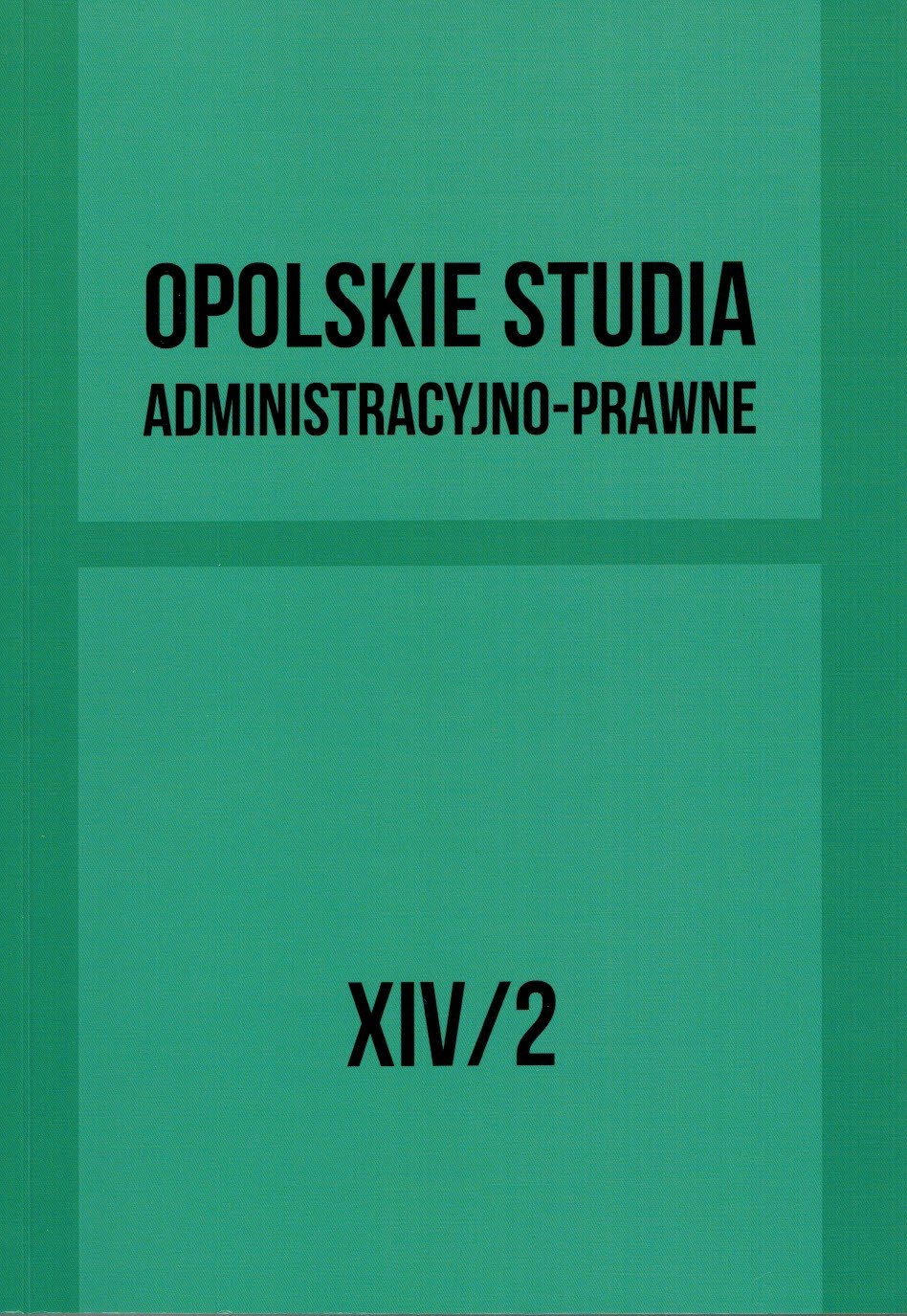
The purpose of this article is to describe the relationship between parliamentarism and the social teaching of the Catholic Church, with a special emphasis on pastoral, social and political activities of cardinal Adam Stefan Sapieha. The system of parliamentary government is a system of government in which the legislative authority in the form of parliament passes laws and controls the executive authority, which is wielded by the president together with the government. An important aspect of this system of government is the interpenetration of these two authorities and their mutual complementing, which is evident even in the possibility of bringing forward bills by the executive. The view of the parliamentary system held by cardinal Adam Stefan Sapieha was based on the social attitude which was represented by the Christian Democrats. The political system accepted by the Christian Democrats was democracy, which very clearly demonstrates all positive forms of local government’s actions and the principle of subsidiarity. The basis of this assumption is that it is on the lowest levels of society where the common good based on social solidarity can be realized. The Archbishop of Krakow perceived the political, social and economic issues through the prism of the Catholic Church. He believed that the task of the state is to protect society against the moral decay of anti-Christian totalitarian systems. According to Sapieha, the state should act as a servant in relation to the nation. The Metropolitan claimed also that the vision of the relationship between social ranks, contrary to the socialist vision, was not burdened with a conflict. Sapieha saw the danger of drastic social inequality, but definitely spoke out against socialist and communist solutions. The cardinal emphasized the accent which should be laid on the development of all forms of civic government. So the ideal state is a decentralized state, in which citizens, due to rights and activities taken up by themselves, have an influence over the governments. According to Sapieha, a democratic state of law should respect political pluralism based on the principle of subsidiarity and justice, as well as sovereignty, and above all – the principle of parliamentary majority.
More...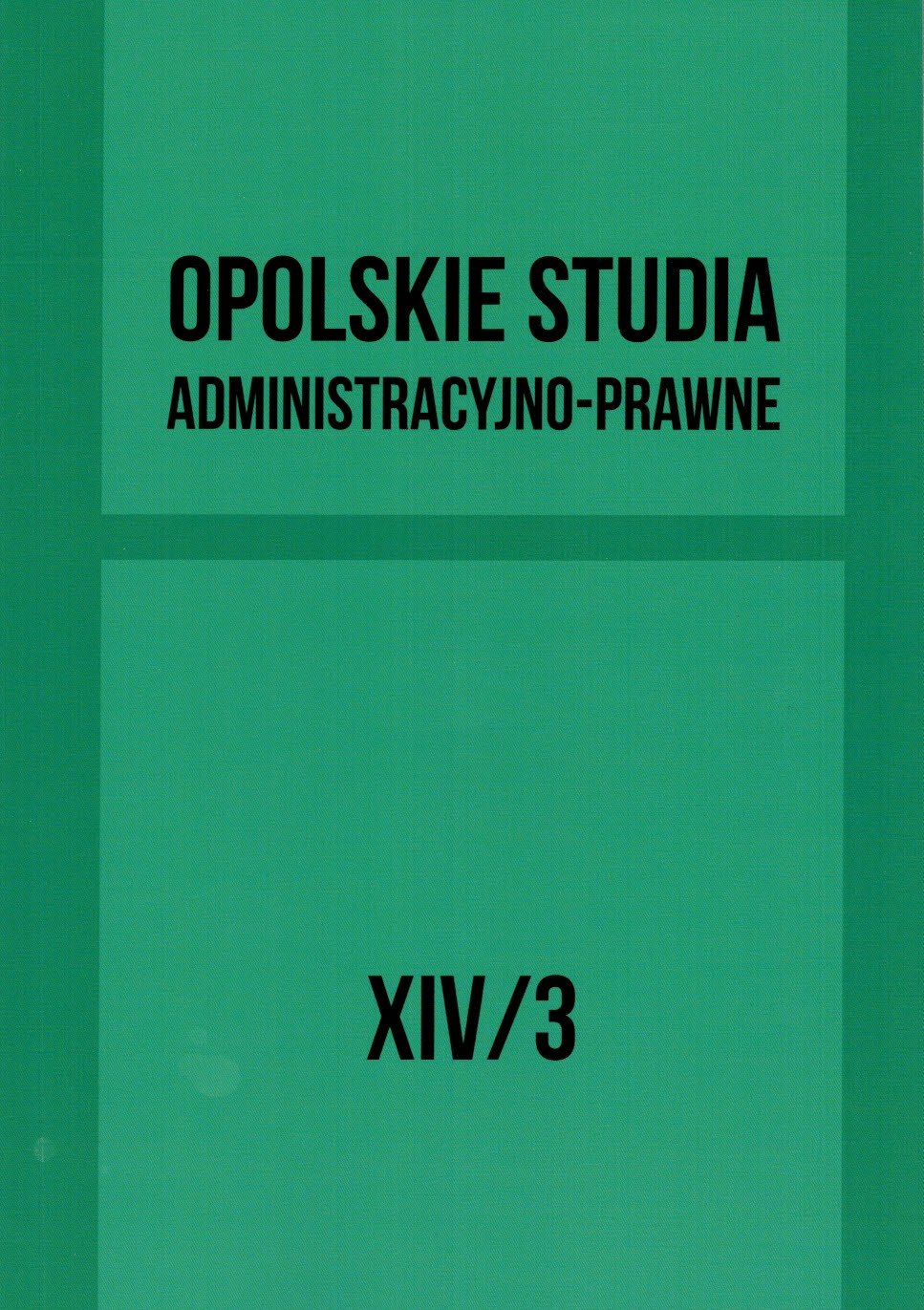
The article deals with one of the most important issues in the Soviet political and legal history. The choice of the political form that was established almost immediately after the victory of the Bolsheviks in the Revolution of 1917, meant a change in the direction of development of the state. Councils became an alternative to the parliamentary republic. The article analyzes the basic principles of both political systems and the reasons for such a choice. The author emphasizes transnational political direction of the so-called “direct action” which took place not only in Russia, but also in several European countries.
More...
The author undertakes to establish the legal title to performing the creative function by the two chambers of Polish Parliament as a representative of the nation. The article describes the competence of the Sejm and the Senate as the constitutional authorities of the State that perform the creative function. The creative function of the Parliament may be considered as a result of the activities of this institution for other institutions as well as the functioning of the whole system. Voters’ crisis of confidence in the both chambers of Polish Parliament may also be understood as a crisis of its functions.
More...
Parliament – an institution of a democratic state – a member of the Union – is not only an authority but also, as in the case of the European Union, the only directly and universally elected representative body of the European Union. The article presents questions related to the essence of parliament and that of a supranational parliament which are vital while dealing with the subject matter. It proves that the growth of the European Parliament’s powers was the direct reason for departing from the system of delegating representatives to the Parliament for the benefit of direct elections. It presents direct and universal elections to the European Parliament in the context of presenting legal regulations applicable in this respect. It describes a new legal category – citizenship of the European Union – primarily in terms of active and passive suffrage to the European Parliament, as a political entitlement of a citizen of the European Union.
More...
Participatory democracy is one of the potential directions of development of the system of social organization. The search of opportunities to improve the current system results from the incompatibility of the present solutions to the times we live in. A significant impact on the devaluation of the system of representative democracy is the development of technology, which results in a faster flow of ideas (the Internet, elimination of barriers to communication). Thus, for several years now there have been made attempts to create different types of communication platforms on the axis citizens-the authority. Solutions of this type progressively enter the democratic practice. Therefore, most probably in the near future, there will dominate the expectation of varied platforms of public consultations, especially “public consultations on the Internet”. This will include all administrative levels – from the national (referenda via the Internet), ministerial level (specific consultations within ministries) to the local government.
More...
In the first part of the article, the author deals with the question of the functions of the Ukrainian Parliament, which include constitutional, legislative, budgetary and financial, controlling and creative functions. Then, there are attempts to clarify the meaning of these functions. The author pays particular attention to the importance of the legislative functions of the Verkhovna Rada [Supreme Council]. The next part deals with the issues concerning the structure of the Parliament, including specific responsibilities of various bodies and their functioning. Next, the author refers to the mode of Parliament’s operating, sessions, as well as meetings of committees and commissions. He pays special attention to the fact that the competences of the standing committees of the Ukrainian Parliament cover the entirety of public life in this country. The parliamentary factions are also important for the functioning of the Verkhovna Rada. Further, the author examines the status of Members of Parliament, including the issues of formal and substantive immunity. Next, the subject of the consideration includes the duties and powers arising under the mandate of a people’s deputy. Another topic touches upon the incompatibility of a deputy’s mandate with execution of other public functions. The article is concluded with general remarks which imply that the Ukrainian Verkhovna Rada relies on the parliamentary rules used elsewhere. However, what distinguishes the Verkhovna Rada is its unicameralism and corruption problems connected with the functioning of a young democracy.
More...
This article undertakes to show the way that has led to the statutory decriminalization of euthanasia-related murder and assisted suicide in the Kingdom of the Netherlands. It presents the evolution of the views held by Dutch society on the euthanasia related practice, in the consequence of which death on demand has become legal after less than thirty years. Due attention is paid to the role of organs of public authority in these changes, with a particular emphasis put on the role of the Dutch Parliament – the States General. Because of scarcity of space and limited length of the article, the change in the attitudes toward euthanasia, which has taken place in the Netherlands, is presented in a synthetic way – from the first discussions on admissibility of a euthanasia-related murder carried out in the 1970s, through the practice of killing patients at their request, which was against the law at that time, but with years began more and more acceptable, up to the statutory decriminalization of euthanasia by the Dutch Parliament, made with the support of the majority of society.
More...
While the granting of rebates is a common commercial practice largely used by dominant and non-dominant firms, the assessment of rebates is one of the most complex and unsettled areas of competition law. In the European Union, the decisional practice of the case-law of the Court of Justice of the European Union has been harshly criticized as unnecessarily strict, following a form-based approach that sits uneasily with moderneconomic theory. The degree of divergence between US and European case law on the proper legal treatment of loyalty rebates is larger than in almost any other field of international antitrust law. Whereas US jurisprudence has traditionally considered loyalty rebates to be a pro-competitive business practice, the Court of Justice of the European Union has repeatedly held that loyalty rebates are an illegal means of distorting competition.
More...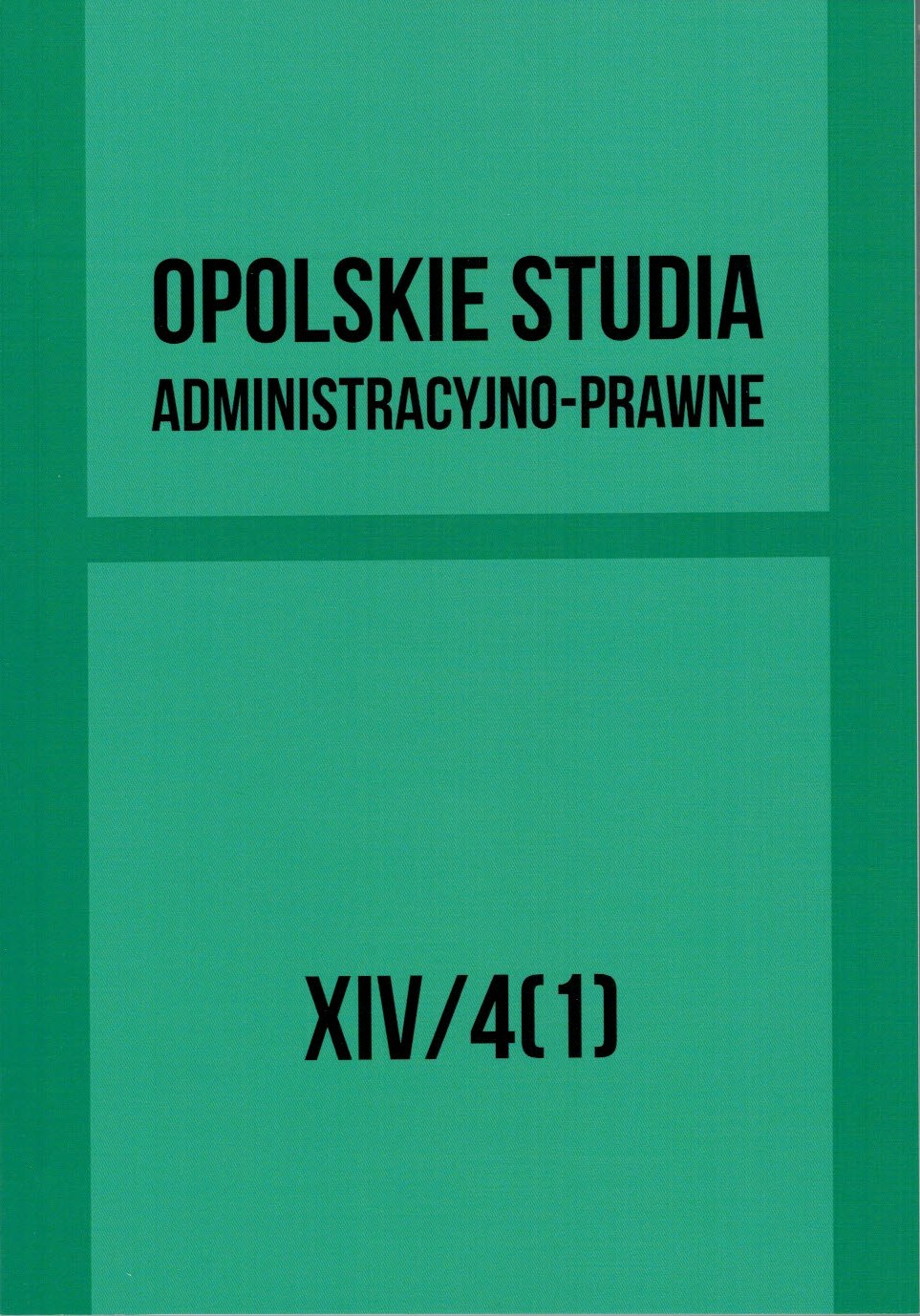
The issue of re-nationalization (disintegration and fragmentation) of integration process is manifested by the will of some of the Member States to verify their relations with the European Union. In the age of an economic crisis of the EU and in relation to the large migration of the population, there has emerged strong social and political criticism, on the European level, of the integration process, with some Member States even consideringtheir withdrawal from the EU. In those States, demands forextending the Member States’ competences in the field of some EU policies are becoming more and more popular. The legal effects of the above-mentioned processes are visible in the free movements of the internal market, mainly within the free movement of persons. Therefore, there are problems, such as increased social dumping process, the need to retain the output of the European labour law, the issue of the so-called social tourism, erosion of the meaning of the EU citizenship and the principle of equal treatment.
More...
The principle of proportionality in the EU legal order applies, among others, to actions taken by Member States in the situation where they are willing to use, permitted by the EU law, derogation from its provisions, in particular – in the area of internal market freedoms. Derogation from those freedoms will not be justified if it is not absolutely necessary. National regulations must therefore be proportionate to the objective that these restrictions are to protect. With respect to the free movement of persons, as an example of these goals, the protection of fundamental rights could be mentioned. It is vitally important for the realization of an internal market due to the existence of interesting interactions occurring between them and specific ways of applying the principle of proportionality when they collide with each other.
More...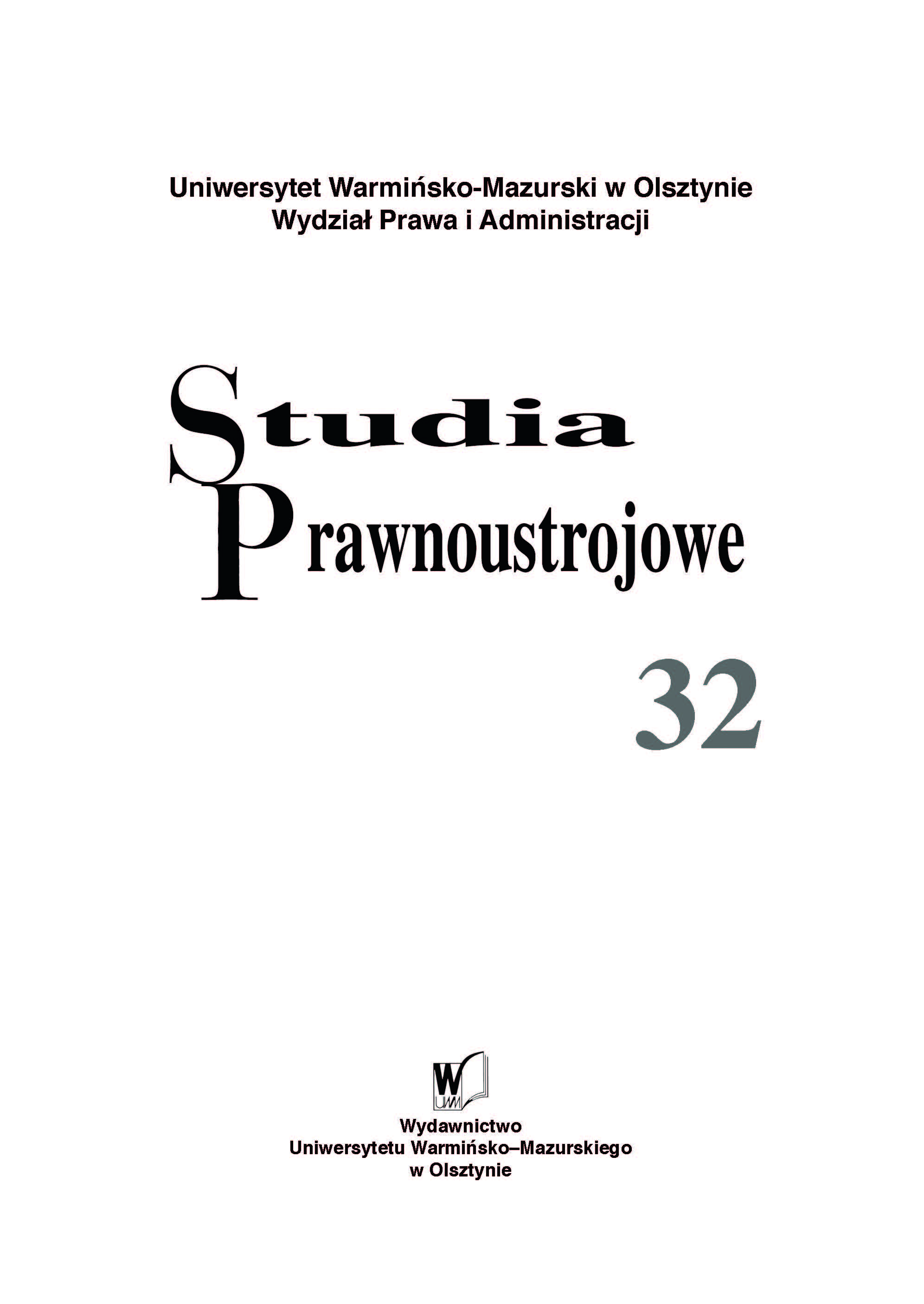
The study contains considerations for the evolution of the legal means of pre- venting the removal of trees without the required permit. The analysis carried out concerns the legal regulations introduced after the Constitutional Court's judgement of 1 July 2014 issued in case SK 6/12. The author presents the criticisms of existing regulations in the field relating to the legal situation of entrepreneurs who, without the required permit, removed a tree for the purposes of their business activity and proposes de lege ferenda solutions.
More...
The aim of this article is to find out whether – and if so – to what extent, provisions included in the Polish constitution are a barrier in the process of harmonization of the Polish law with the EU law and in the process of full achievement of the objectives of the European regulator. Looking for the answer to this question, this paper includes analysis of changes introduced by the Act of the 5th of August 2015 on macroprudential supervision of financial system and crisis management in the financial system. This act transposes the directive No 2013/26/EU of the European Parliament and of the Council of the 26 June 2013 on access to the activity of credit institutions and the prudential supervision of credit institutions and investment fi rms, amending Directive 2002/87/EC and repealing Directives 2006/48/EC and 2006/49/EC, to the Polish legal Framework. This act also introduces adjustments of Polish law to provisions included in Regulation (EU) No 575/2013 of the European Parliament and of the Council of 26 June 2013 on prudential requirements for credit institutions and investment fi rms and amending Regulation (EU) No 648/2012. The analysis conducted in this article leads to the conclusion that provisions included in the Constitution of Republic of Poland are a barrier in the process of harmonization and gives opportunity to put forward de lege ferenda implications.
More...![„Nauka prawa […] stała się nieuchronnie potrzebną nie tylko przez swą użyteczność, lecz obowiązki, jakie nas łączą w obywatelskim stanie”1. O tradycji i nowoczesności
w nauczaniu prawa w Księstwie Warszawskim i Królestwie Polskim (1807–1830)](/api/image/getissuecoverimage?id=picture_2015_28930.jpg)
The teaching of law in the Duchy of Warsaw (1807–1815) and the Kingdom of Poland (1815–1832) was due to the implementation of requirements concerning new judicial and administrative posts. Law education was now obligatory, in contrast to the Republic of Nobles (XVI–XVIII cent.). That is why the new law schools were established: the School of Law and Administration in the Duchy of Warsaw, and the Law and Administration Faculty of the Warsaw University in the Kingdom of Poland. The new social stratification and the establishment of a social class of the intelligentsia were in progress, and judicial posts were now open to persons of non-noble origin. The School of Law and Administration created its own modern program for the teaching of law. In addition to the theory of law, the new program also implemented the elements of general knowledge, as well as law education, known from the Republic of Nobles: the basis of all active citizenship. These components were creating a new understanding of the terms “state” and “nation".
More...
The right to the environment is one of the fundamental rights of the individual and collective rights. Hence, the legal environmental protection also requires ethical and economic elements that are derived from the principle of precautionary. Its assessment should always be interpreted in the context of the cultural changes taking place to promote new aims and values. Because of that, nowadays legal environment protection is is combined with the principle of sustainable development, which requires foresight in anticipating the possible consequences of human activities. Given the intensive development of technologies based on the use of living biologi- cal systems are as complicated as issues of intergenerational justice. Balanced deve- lopment policy, thus solving problems of resource use, taking into account the integrity of the nature's various elements. It requires education and development of environmental ethics witch should be understood as restrictive ethics, i.e. selection and willingness not to abuse the available resources. That ethics consists of accoun- tability and respect for future generations which also have the right to inherit the environment that fits for life and provides opportunities for development.
More...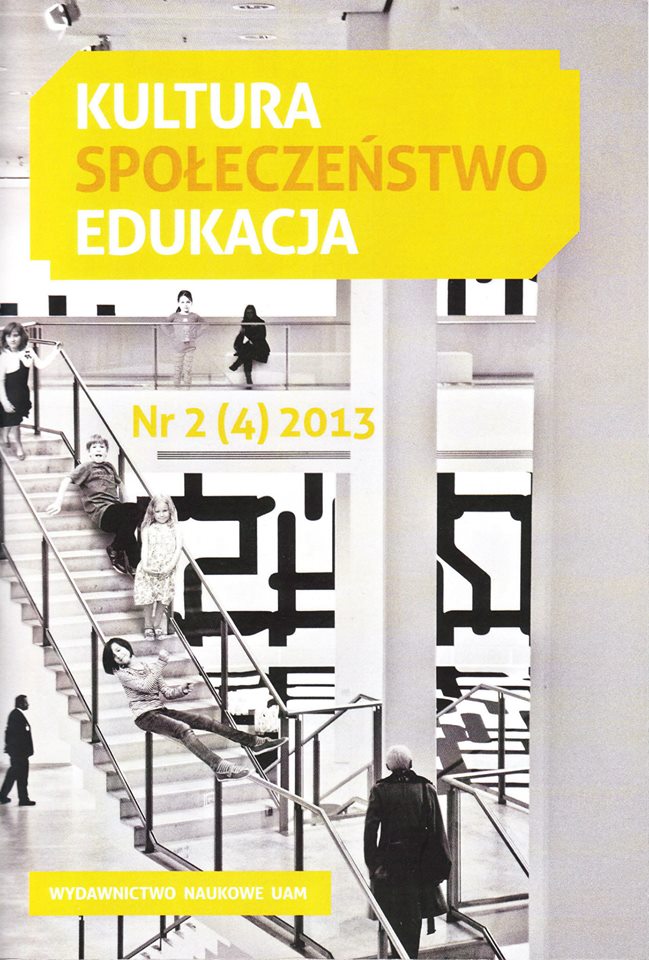
This article is an analysis of a role of copyrights in shaping forming of young creator’s attitude toward life. For that purpose, an attempt has been made to define the character and frames of legal and proprietorial protection of the creative process of university students. As copyrights protect author’s identity, practices violating such rights may lead to problems with finding and expressing one’s own identity, in particular against a role played by creativity in a proper development of human personality. A discussion on social and legal situation of youth as a subject to copyrights extends to juridical, psychological and pedagogical categories, while also undertaking, within a certain scope, an attempt to synthesise them. A basic conclusion provided in this article indicates a possibility of improving the quality of copyrights protection also through skilful guidance of young people’s consciousness.
More...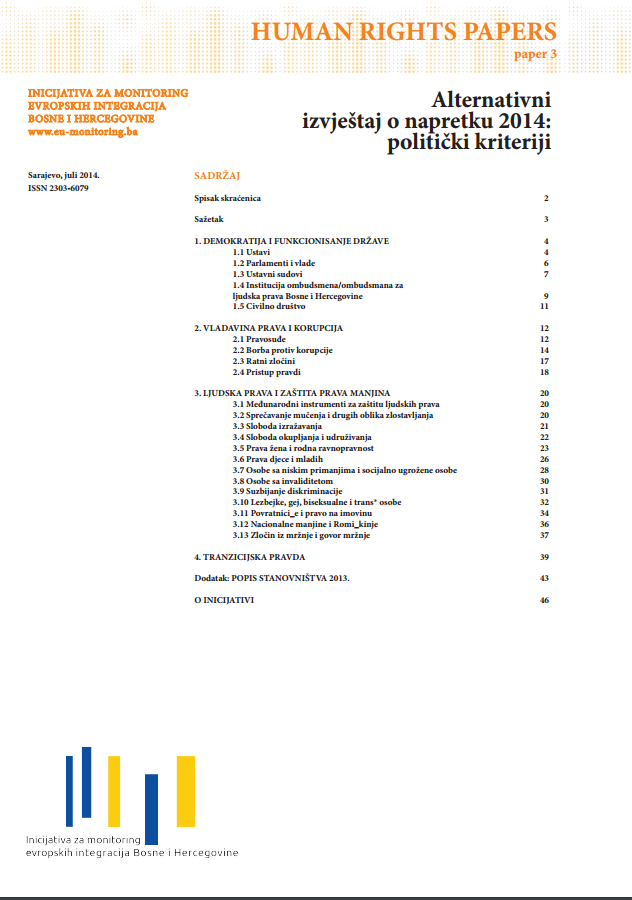
Pred vama se nalazi drugi Alternativni izvještaj o napretku Bosne i Hercegovine na putu ka članstvu u Evropskoj uniji. Izvještaj predstavlja zajednički napor više desetina osoba i organizacija, čiji je zajednički cilj bio da se iz ugla organizacija civilnog društva predstavi aktuelno stanje integracija Bosne i Hercegovine. Imajući na umu da je zvanični Izvještaj o napretku politički izvještaj Evropske komisije, mišljenja smo da kroz objavljivanje Alternativnog izvještaja možemo uticati na njegov sadržaj. Upravo zbog toga, Alternativni izvještaj objavljujemo skoro tri mjeseca pred objavljivanje zvaničnog Izvještaja, u nadi da će to imati uticaja na formuliranje zvaničnog Izvještaja. Izvještaj se u potpunosti fokusira na tzv. političke kriterije, sa fokusom na pitanja: - stepena demokratičnosti i funkcionisanja države, - vladavine prava i korupcije, - ljudskih prava, naročito prava manjinskih i ranjivih grupa, i - tranzicione pravde. Svjedoci smo da tokom 2013. i 2014. godine nije postignut nikakav relevantan napredak. Proces provedbe odluke Sejdić i Finci protiv Bosne i Hercegovine je u potpunosti izmješten iz Parlamenta. Demokratske performanse parlamenata i vlada na državnom, entitetskom i kantonalnom nivou su izrazito slabe. Rad institucija odlikuje nestabilnost, netransparentnost i neefikasnost. Odluke ustavnih sudova se i dalje ne provode. Nikakve značajne i sistematske politike za borbu protiv kršenja ljudskih prava nisu usvojene. Reforme pravosuđa su zaustavljene, a Strukturirani dijalog za pravosuđe između BiH i EU ne pokazuje napredak. Ni jedan značajan slučaj borbe protiv korupcije nije procesuiran. Manjinske i ranjive grupe žive i dalje u teškim uslovima. Diskriminacija i nasilje su sveprisutni, a sam Zakon o zabrani diskriminacije nije pokazao očekivane rezultate, imajući na umu da su pet godina od donošenja Zakona donesene samo dvije pravosnažne presude. Sveobuhvatne anti-diskriminacijske politike za socijalnu integraciju ili ne postoje ili ukoliko postoje, onda se skoro pa ne provode. Poplave su još dodatno pogodile one najranjivije u društvu. Procesuiranje ratnih zločina i suočavanje sa prošlošću, kao preduslovi za kreiranje zdravog okruženja i gradnju zajedničke države, predstavljaju dodatni problem. Politička podrška ratnim zločincima od strane lidera političkih stranaka samo dalje dijeli već izrazito fragmentirano društvo. Nadamo se da će opšti izbori u oktobru 2014. godine (iako se održavaju po diskriminirajućim pravilima) donijeti stabilnije političke strukture, spremne da se suoče sa različitim problemima. Inicijativa za monitoring evropskih integracija BiH će svakako zagovarati promjene kada je u pitanju usvajanje novih zakona i politika, ali i provedba istih. Nadamo se također da će bh. vlasti ali i EU institucije podržati jaču poziciju civilnog društva unutar različitih foruma u okviru EU integracija BiH. Civilno društvo mora postati treći akter ovog procesa (pored države i EU institucija).
More...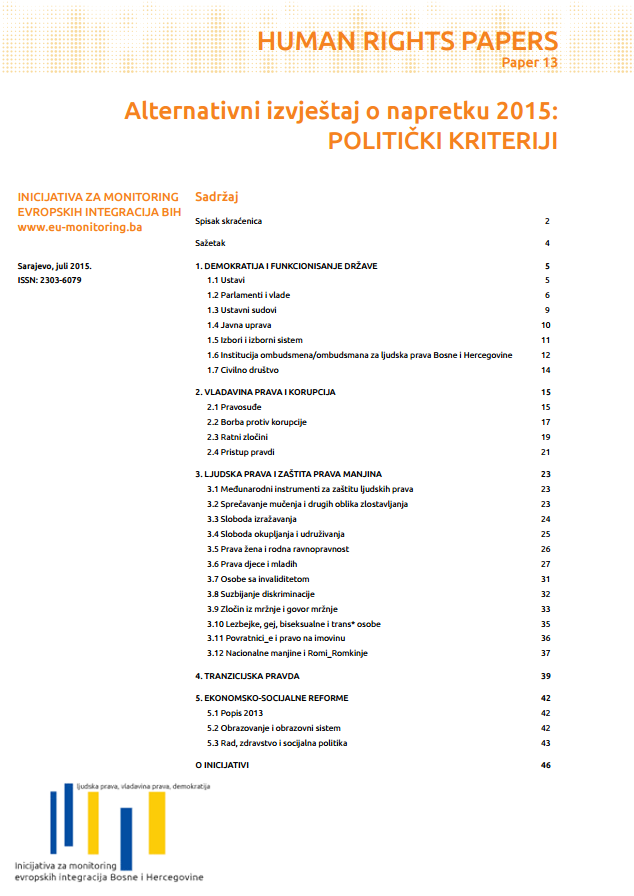
Pred vama se nalazi treći Alternativni izvještaj o napretku Bosne i Hercegovine na putu ka članstvu u Evropsku uniju. Izvještaj predstavlja zajednički napor više desetina osoba i organizacija, čiji je zajednički cilj bio da se iz ugla organizacija civilnog društva predstavi aktuelno stanje integracija Bosne i Hercegovine. Imajući na umu da je zvanični Izvještaj o napretku politički izvještaj Evropske komisije, mišljenja smo da kroz objavljivanje Alternativnog izvještaja možemo uticati na njegov sadržaj. Upravo zbog toga, Alternativni izvještaj objavljujemo skoro tri mjeseca pred objavljivanje zvaničnog Izvještaja, u nadi da će to imati uticaja na formulisanje zvaničnog Izvještaja. Izvještaj se u potpunosti fokusira na tzv. političke kriterije, s naglaskom na pitanja: - stepena demokratičnosti i funkcionisanja države, - vladavine prava i korupcije, - ljudskih prava, naročito prava manjinskih i ranjivih grupa, i - tranzicione pravde. Svjedoci smo da od ljeta 2014. do ljeta 2015. godine, što je period koji pokriva ovaj izvještaj, u ovim oblastima nije postignut nikakav relevantan napredak. Proces provedbe odluka ECHR u slučajevima “Sejdić i Finci” i “Zornić protiv Bosne i Hercegovine” je u potpunosti marginaliziran i više ne predstavlja predmet rasprave. Demokratske performanse parlamenata i vlada na državnom, entitetskom i kantonalnom nivou su izrazito slabe. Rad institucija i dalje odlikuje i nestabilnost, netransparentnost i neefikasnost. Odluke ustavnih sudova ne samo da se ne provode, već se i sama pozicija Ustavnog suda BiH dovodi u pitanje. Nikakve značajne i sistematske politike za borbu protiv kršenja ljudskih prava nisu usvojene. Očekivanja da će Opšti izbori u oktobru 2014. godine donijeti stabilnije političke strukture, spremne da se suoče sa različitim problemima, nisu ispunjena. Od izbora do danas, Bosna i Hercegovina se nalazi u stanju konstantne političke krize. Reforme pravosuđa su zaustavljene, a Strukturirani dijalog za pravosuđe između BiH i EU ne pokazuje napredak. Nijedan značajan slučaj borbe protiv korupcije nije procesuiran. Manjinske i ranjive grupe i dalje žive u teškim uslovima. Diskriminacija i nasilje su sveprisutni, a sam Zakon o zabrani diskriminacije nije pokazao očekivane rezultate, imajući na umu da je u šest godina od donošenja Zakona doneseno svega nekoliko pravosnažnih presuda. Sveobuhvatne antidiskriminacijske politike ne postoje. Poplave koje su pogodile državu u maju 2014. dodatno su pogoršale položaj ekonomski i socijalno ugroženih grupa. Procesuiranje ratnih zločina i suočavanje s prošlošću, kao preduslovi za kreiranje zdravog okruženja i gradnju zajedničke države, predstavljaju dodatni problem. Politička podrška ratnim zločincima od strane lidera političkih stranaka nastavlja da dijeli već izrazito fragmentirano društvo. Inicijativa za monitoring evropskih integracija BiH će svakako zagovarati promjene u sferi usvajanja novih zakona i politika, ali i provedbe istih. Nadamo se, takođe, da će i bh. vlasti i EU institucije podržati jaču poziciju civilnog društva unutar različitih foruma u okviru EU integracija BiH. Civilno društvo mora postati treći akter ovog procesa (pored države i EU institucija).
More...